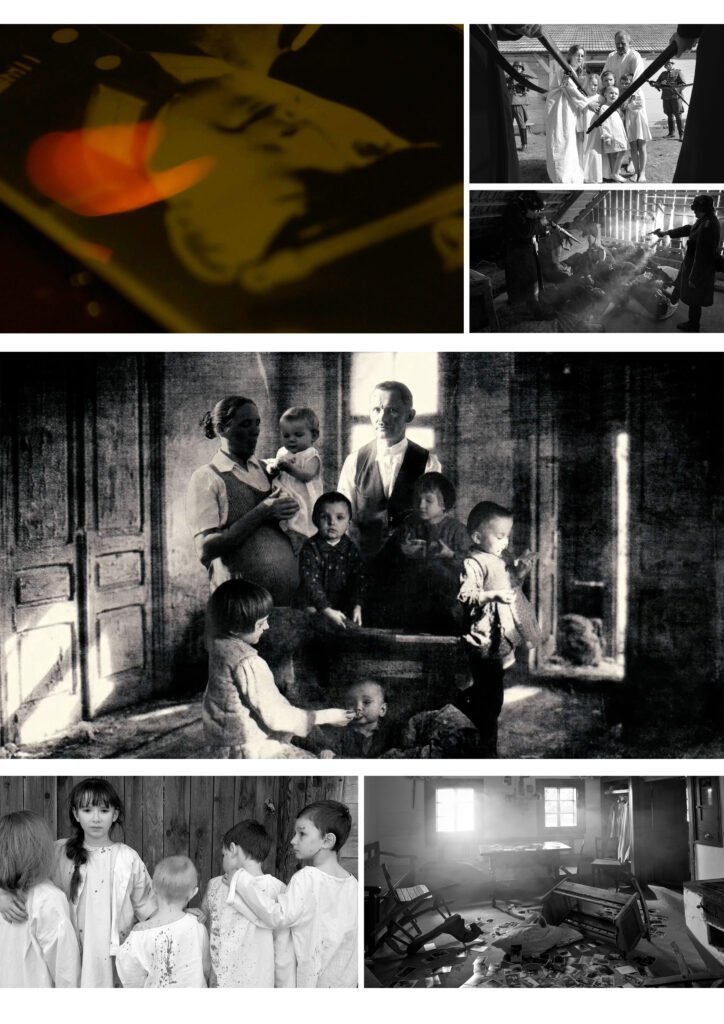by Jonathan Luxmoore

(OSV News) — Tens of thousands of Catholics from Poland and abroad are expected to attend the first-ever beatification Sept. 10 of a whole family summarily executed by their country’s German occupiers for sheltering Jews in their farmhouse.
“There’s been great interest with many offers of help — and while the practical and logistical tasks have been intensive, everyone wishing to come will be well received,” explained Archbishop Adam Szal of Przemysl, whose southeastern diocese is hosting the beatification.
“For believers, this is a religious event, and we’ve prepared spiritually with prayers uniting every family in the faith. But we also want it to ensure the historical truth is known, and a more truthful image of Poland presented to the world,” he said.
The archbishop spoke amid preparations for the Saturday beatification of Józef and Wiktoria Ulma and their seven small children, eight decades after they were shot and thrown in a ditch for hiding Jews at Markowa.
In an OSV News interview, he said the heroic story offered “lessons and challenges” to contemporary society, adding that he was grateful for the involvement of Jewish groups in the beatification, led by Poland’s U.S.-born chief rabbi, Michael Schudrich.
“It will evoke the terror of a war in which human dignity was scorned and lives destroyed in the name of a murderous ideology,” Archbishop Szal told OSV News.
“From the attitude of those who protected others, however, we can also find a summons to our contemporary world, where refugees still face persecution and need us to show empathy within our possibilities,” he said.
Over 32,000 people have registered to attend the beatification, to be conducted at Markowa by Cardinal Marcello Semeraro, prefect of the Vatican’s Dicastery for the Causes of Saints, assisted by 1,000 priests and 80 cardinals and bishops, with a 1,250-member choir and orchestra.
The Mass, close to a new Museum of Poles Saving Jews in World War II, has been preceded by a prayer novena in the Przemysl Archdiocese’s 399 Catholic parishes, and also will be attended by Poland’s president, Andrzej Duda, and officials from two dozen countries, including the United States.
However, in a Sept. 5 statement, Cardinal Semeraro denied media claims that an “unborn child” also would be beatified during the ceremony.
He said Wiktoria Ulma’s seventh unnamed child had, in reality, been “born at the moment of the mother’s martyrdom,” receiving the “baptism of blood,” and could therefore be “added to the group of child martyrs.” Medicine terms this a so-called coffin birth, coming after the death of the mother.
In a Sept. 5 commentary, the editor of Poland’s Catholic Wiez periodical, Zbigniew Nosowski, said Cardinal Semeraro’s clarification should be viewed as a “serious correction” to “repeated statements about the beatification of an unborn child” by Poland’s Catholic bishops.
In a June pastoral letter the Polish bishops wrote that this “will be an unprecedented beatification, as it will be the first time an entire family will be elevated to the altars and the first time a child yet unborn will be beatified.”
Speaking at the Sept. 3 unveiling of a memorial in Markowa, a descendant of the eight fugitive Jews shot with the Ulma family, Ellen Goldman, said she had learned of her cousins’ fate only “many years later” while living in New York, and been “moved to tears” when also reading about the “supreme sacrifice” of the Ulmas.
She added that it was heartening to know entire families had “done the right thing” even “in the midst of such a nightmare,” while rejecting Nazi propaganda and “truly living out the teachings of Christianity and Judaism.”
Meanwhile, the director of Warsaw’s Pilecki Institute, which organized the unveiling ceremony, welcomed the presence of family members of both rescued Jews and Poles murdered for helping them, and told OSV News the beatification would display “an important fragment not only of the life of the Ulma family, but also of Poland itself.”
“Any rescue attempt, especially when it ended with the death of those responsible, is a testimony to humanity and solidarity with the persecuted, as well as to courage and mercy,” said Magdalena Gawin, whose institute is named after Witold Pilecki (1901-1948), who helped organize the resistance and reported on German atrocities at the Auschwitz concentration camp, but was shot as a “foreign imperialist” agent by Poland’s post-war communist regime.
“The Ulma family’s beatification is important for Catholics but also for all of humanity, in breaking the unfair and harmful stereotype that hiding someone without a happy ending signifies a failed rescue attempt. In reality, people murdered for helping the persecuted have a special place with God,” Gawin said.
Beatification of the Ulmas, who were shot March 24, 1944, will include the presentation of a specially designed reliquary by Markowa’s parish priest, Father Roman Chowaniec, and the reburial of the Ulmas’ remains in the town’s 17th-century St. Dorothy Church.
The reliquary will be placed in the side altar of Virgin Mary.
“It is made in the form of a sarcophagus,” Father Chowaniec told OSV News. “It is crowned with a palm branch, which in Christian iconography is a symbol of martyrdom,” he said.
A separate ceremony will be conducted Sept. 10 by Cardinal Semeraro, Archbishop Szal and Rabbi Schudrich at the nearby Jagiella-Niechcialki war cemetery, where the eight murdered Jews lie buried.
In a Sept. 5 commentary for Poland’s Catholic Information Agency, known as KAI, the Markowa museum’s director, Waldemar Rataj, said the sheltering of Jews had been known among the town’s 4,500 inhabitants, testifying to the Christian “values, principles and social norms that had shaped the community for centuries.”
The German police commander, Eilert Dieken, had justified killing the Ulma children to spare Markowa residents “the trouble of looking after them,” and died at age 62, after working as a policeman in his hometown of Esens without any penalty for his war crimes.
In her OSV News interview, Gawin said she hoped “death for helping during the occupation” would be recognized as a crime against humanity.
However, she added that historians and researchers had not identified a single German ever judicially punished for “murdering Poles for helping Jews,” and said she hoped the “problem of unpunished crimes” would now be approached in a new way.
Meanwhile, Archbishop Szal said he was grateful to Jews who had helped “cultivate the memory” of the Ulma family, especially Abraham Segal, one of Markowa’s 21 Jewish survivors, whose work had been continued by his children and grandchildren since his death in Israel in 2019.
“Like others, he felt called to tell the truth — as someone whose life was saved and who was protected by others on many occasions,” the Przemysl archbishop told OSV News.
“People of goodwill, even those far from these events today, can draw many lessons from them — particularly through the example of a family deeply involved in the social and religious life of their community, which was able to maintain its sacramental dignity and stay loyal to moral values even in such harsh conditions,” he said. “In the Ulma family photos, we see happy children who, though barefoot and poorly dressed, clearly feel safe and secure thanks to the love of their hard-pressed parents.”






